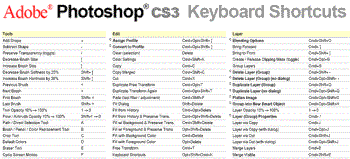 Google today announced the launch of Knol, a Wikipedia-esque site that hosts articles from contributors. Google hopes the articles become among the most authoritative on the Web — which represents a direct challenge to media sites.
Google today announced the launch of Knol, a Wikipedia-esque site that hosts articles from contributors. Google hopes the articles become among the most authoritative on the Web — which represents a direct challenge to media sites.In a June 2006 interview with the LA Times, Google CEO Eric Schmidt was asked whether Google is a media company or a technology company. His response:
“It’s better to think of Google as a technology company. Google is run by three computer scientists, and Google is an innovator in technology in our space. We’re in the advertising business – 99% of our revenue is advertising-related. But that doesn’t make us a media company. We don’t do our own content. We get you to someone else’s content faster.“
If today’s launch of Google’s Knol is any indication, this line of thinking has fundamentally changed. Google, in short, is becoming a full-fledged media company in direct competition with established news and knowledge sites.
Knol –short for “knowledge– is Google’s new Wikipedia-esque site that hosts authoritative articles on a wide variety of subjects. Knol recruits contributors to write articles on subjects such as medical conditions, sports and more. Article authors earn money by running AdSense campaigns on their content. Knol also offers a suite of collaboration tools that allows other users to suggest changes to the original article.
This move is a fundamental shift from Google’s traditional directive of helping users find content, as opposed to creating and hosting the content. It is a shift that has continued as Google acquired Blogger, launched Google Page Creator, allowed users to publish documents with Google Docs and began hosting Associated Press articles and user commentary on its Google News service (as opposed to linking to AP affiliates’ stories and leaving comments to the news sites).
However, Google also brings an enormous amount of traffic to news sites — traffic that means big advertising dollars. Most media companies worth their salt have significant search engine optimization efforts in place to make sure those who seek information are likely to find it on a news site. It’s for that reason that news organizations’ view of Google approaches the realm of bipolar disorder. News sites beg for the Google traffic but are also being encroached upon by Google features, such as Knol and new search boxes that let users bypass news sites’ own search features (which does help people actually find stuff for a change).
The Guardian’s Jack Schofield summarizes it well when he writes that “Knol represents an attack on the media industry in general.” TechCrunch’s Michael Arrington believes that Knol may be “a step too far.” Search engine expert and author Danny Sullivan also agrees, saying that:
“[Google’s] Search, Ads, & Apps mantra that CEO Eric Schmidt has repeated on several occasions underscores that offering content tools is fair game within its mission. But does hosting content turn it into a competitor with other content providers and set up an unfair advantage in gaining traffic that might otherwise flow to them?”
Knol also represents a potential conflict of interest in Google’s own search results. If Knol articles are meant to be “authoritative articles about specific topics,” those familiar with search engine optimization will see the red flag. Google’s incentive to make Knol articles the most authoritative on the Internet puts it in direct competition with topic-specific columnists, news stories on a plethora of subjects and web sites such as About.com and Wikipedia. Because Google itself creates the algorithms that define what is “authoritative,” Google would have an unfair advantage over other sites — even if it is simply in terms of using in-house knowledge as opposed to somehow altering the actual ranking algorithms.
Nevertheless, BuzzMachine’s Jeff Jarvis has made the point that it is unproductive to argue whether Google is a friend or foe. He is correct in that we should try to emulate Google, rather than become disgruntled and blame the news industry’s woes on the search giant. Google’s endeavors at hosting and creating content doesn’t mean news sites can’t continue the symbiotic relationship with search engines.
But make no mistake; Google isn’t becoming a direct competitor to traditional news and media sites. It already is.
 J-Lab: The Institute for Interactive Journalism has announced its 2008 winners and honorable mentions, which include a site that tracks the source of edits on Wikipedia, an imaginative political fact-checking site and a site that tracks reports of violence in Kenya.
J-Lab: The Institute for Interactive Journalism has announced its 2008 winners and honorable mentions, which include a site that tracks the source of edits on Wikipedia, an imaginative political fact-checking site and a site that tracks reports of violence in Kenya. If you’ve been waiting to see who’s coming to BlogOrlando this year before you decide to make the trip, well wait no further! The
If you’ve been waiting to see who’s coming to BlogOrlando this year before you decide to make the trip, well wait no further! The 


